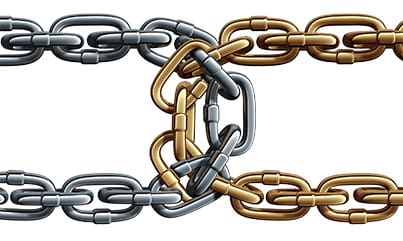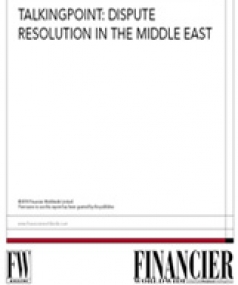Enforcement of New York Convention Award in the UAE
 Introduction
Introduction
Arbitration clauses are becoming more and more prominent in corporate agreements, the reason behind this is the ease with which disputes can be dealt with as compared to the traditional court system. In any case, a corporation may find that arbitration is the easiest and the most rational method of settlement.
Arbitration is, therefore, becoming an increasingly popular means of dispute resolution internationally. This popularity in the international sphere has given rise to a large number of multinational and bilateral treaties. In the UAE, the primary source of domestic arbitration law fell under the Federal Law Number 1 of 1992 on the UAE Civil Procedure Code that regulated the execution of foreign judgments, orders and instruments. This was consequently replaced by the Federal Law Number 6 of 2018 on Arbitration, and this Law applies to all arbitral proceedings carried out in the UAE. The introduction of this Law was a step in the right direction since it facilitates the amalgamation of national arbitration laws with the UNCITRAL Model Laws on International Commercial Arbitration. The Arbitration Law is, therefore, applicable to all entities whose seat of arbitration is onshore within the territory of the UAE. The exception to this Law is the financial free zones that are considered to be offshore and have their own autonomous laws, courts and jurisdictions.
Key provisions of an arbitration agreement
In order to have a valid arbitration agreement, the Law provides for some formal requirements that need to be adhered to, as follows:
- Any agreement to refer disputes to arbitration shall be in writing;
- The parties to the contract must be capable of entering into the contract;
- The arbitration agreement must have the original contract that shows the intention of the parties to resort to arbitration or the presence of an addendum to the original contract that shows such intention;
- Arbitration may also be agreed upon orally by the parties; however, such oral agreement can only be considered binding if it occurs in a court or is recorded by a court judgment; and
- It is imperative to note that, the doctrine of severability is recognized by the Law, in that the arbitration clause shall not be affected by nullity, termination or rescission of the contract.
The parties may, as per their discretion, agree upon a common arbitrator. In case parties are unable to come to a decision regarding the appointment within a period of 15 days, a written request shall be submitted to the opposite party that the arbitrator is appointed by the concerned institution to which the matter has been referred.
Further, any connection of the parties with the arbitrator must be disclosed in writing before any doubts about the arbitrator’s impartiality or independence arise. The arbitrator must therefore recuse himself from such a dispute.
As per Federal Decree Number 24 of 2018, the UAE Penal Code imposed criminal liability on an arbitrator who was found guilty of bias. However, as per a later amendment, this rule was said to apply only to experts, translators and other fact-finders appointed in an official capacity. This amendment was a positive step in arbitration, to instill a sense of trust in the minds of arbitrators conducting arbitration within the UAE and would help ensure that arbitrators would not leave a case because of fear of prosecution.
Prominent arbitral institutions in the UAE
The most prominent arbitral institutions in the country are as follows:
- Dubai International Arbitration Center that is governed by the DIAC Arbitration Rules, 2007 and it administers arbitration thereunder.
- The Dubai International Financial Center in association with the London Court of Arbitration (DIFC-LCIA), the arbitration administered herein fall under the DIFC-LCIA Arbitration Rules, 2008.
- Abu Dhabi Conciliation and Arbitration Center (ADCCAC), the rules followed by this institution are the Procedural Regulations of the ADCCAC.
- The Emirates Maritime Arbitration Center (EMAC)
- Sharjah International Commercial Arbitration Center
- Ras Al Khaimah Center for Reconciliation and Commercial Arbitration
Enforcement of Arbitration Award
After the accession of the New York Convention in 2006, the UAE including the ADGM and DIFC entered into treaties for the recognition and enforcement of arbitral awards:
- The GCC Convention for the Execution of Judgments, Delegations and Judicial Notifications, 1996;
- The Riyadh Convention, 1996; and
- The Convention on the Settlement of Investment Disputes, 1965.
In order to give force to the New York Convention in the UAE, the government enacted Federal Decree Number 43 of 2006 regarding The United Arab Emirates Joining the Convention of New York on Recognition and Enforcement of Foreign Arbitral Awards, the details of which are given below.
 Federal Decree Number 43 of 2006 Regarding The United Arab Emirates Joining the Convention of New York on Recognition and Enforcement of Foreign Arbitral Awards
Federal Decree Number 43 of 2006 Regarding The United Arab Emirates Joining the Convention of New York on Recognition and Enforcement of Foreign Arbitral Awards
The United Arab Emirates joined the New York Convention for recognition and enforcement of foreign arbitral awards. The Decree recognizes and enforces arbitral awards made in the territory of the state other than the state where such recognition is sought. Further, this would also apply to arbitral awards that were not considered domestic awards in the state where recognition and enforcement are sought. Important provisions of the Decree are enumerated herein below:
- In order to obtain recognition and enforcement, the parties applying for recognition must attach a duly certified copy of the original award along with a certified copy of the original agreement between the parties. In case the document does not exist in the official language of the country, then translations for the same are required to be provided.
- The contracting states shall recognize an agreement in writing under which the parties undertake to submit themselves to arbitration, in respect of a defined legal relationship, regardless of it being contractual or not.
- The party against whom such enforcement is sought may apply for non-recognition, and such recognition can be refused if the party is able to prove:
- That they were under some incapacity and for this reason, the said agreement is not valid under the Law to which the parties are subjected.
- The party against whom the award is invoked was not given proper notice of appointment of the arbitrator or of the arbitration proceedings or was unable to present his case.
- The award deals with submissions that were beyond the scope of arbitration.
- The composition of the arbitral authority was not in accordance with the agreement between the parties.
- The competent authority can also refuse to grant recognition if it finds that the subject matter is not capable of settlement by the arbitration law of the country, further if the recognition is contrary to public policy, it can be subject to refusal.
- The Decree provides that, the convention shall not have any effect on the recognition and enforcement arbitral awards that are subject to other multilateral or bilateral agreements entered into by the parties.
Enforcement through UAE Courts
It is important to note here, that the Arbitration Law, i.e. Federal Law Number 6 of 2018 on Arbitration, does not apply to foreign arbitral awards. Enforcement of foreign awards can be done in two ways, through the UAE Courts or through the ADGM and DIFC.
For the recognition and enforcement of foreign arbitral awards, we may peruse the provisions of the Cabinet Regulations, i.e. Cabinet Resolution Number 57 of 2018 Concerning the UAE Civil Procedure Law.
- Article 86 of the Cabinet Regulations are concerned with the recognition and enforcement of foreign arbitration awards, and it lays down that, arbitral awards can only be enforced if they adhere to and are permissible under the laws of the state.
- The requirements for the recognition of an arbitral award are laid down in Article 85 of the Regulations as follows:
- The same conditions that apply to the enforcement of national awards shall apply to the foreign arbitral awards, in case the terms of the foreign award are not permissible under national laws, the competent authority may reject recognition and enforcement.
- The judgment passed by the state, has been duly certified by the state where it was passed.
- The parties to the dispute in the concerned matter were appropriately represented and appeared for the matter.
- The judgment passed does not conflict with any other previous judgment issued by a UAE Court.
- The judge enforcing such an order has the authority to compel the presentation of any documents that support the application before the decision is passed.
A claim for recognition and enforcement of a foreign award in the UAE requires an application for recognition or an ex-parte petition; this should be filed directly with the execution court following which, the execution judge will render his judgment within a period of 3 days from submission thereof.
Once the application is accepted, the respondent will be notified and served with a copy of the application that will afford the respondent the opportunity to appeal its order. In the meantime, the claimant may proceed to apply for either executory attachment or securing a judgement debt etc.
- In case a conflict arises about recognition and enforcement under the Cabinet Regulations or the New York Convention, the parties are permitted to invoke the provisions that are most favorable to their circumstances.
- It is to be noted that, Article 236 of the Arbitration Law has not been repealed with respect to the current utility and purpose of UAE law; therefore, the courts have the authority to nullify awards that are found outside the ambit of the Arbitration Law and the New York Convention.
Enforcement through ADGM and DIFC
Another means to recognize and enforce foreign judgements, is through ADGM and DIFC Courts. The laws that are followed hereunder concerning arbitration are the ADGM Arbitration Regulations and the DIFC Arbitration Law, respectively.
The DIFC Arbitration Law (DIFC Law Number 1 of 2008), lays down a procedure for the recognition and enforcement of a foreign arbitration award in Part 4 thereof. Alongside the requirements of recognition and enforcement, the Law also lays down the circumstances under which these foreign awards may be refused.
Prior to the enactment of the Cabinet Regulations, parties to arbitration preferred enforcement and recognition through this mode rather than approaching the UAE Courts. The reason for this is the introduction of the Cabinet Regulations; the procedures for enforcement have become quicker and more cost-effective. However, no injunctive relief is available to parties from precautionary attachment; further, receiving non-monetary relief from UAE courts is a tedious task.
Timelines for enforcement of foreign court judgments
As a general rule laid down under Article 473 of the Civil Code, onshore courts may recognize foreign judgements that are not more than 15 years old. In case of offshore judgements, the judgement creditor is permitted to apply for recognition and enforcement within a period of six years from the date of judgement, upon satisfaction of all the criteria mentioned under the Law. Further, in case of an appeal against the judgement, within six years of the date of the last appeal.
 Conclusion
Conclusion
The changing attitude towards arbitration is taking a positive turn, leading to the development of the legal system in the UAE. It is further, a contributory to transforming UAE into a financial hub in the Middle East. Therefore, foreign award creditors can now optimistically approach the courts within the country for the enforcement of awards against stakeholders in the UAE.
 English
English
 عربي
عربي Русский
Русский 官话
官话 português
português
 Türk
Türk 





























